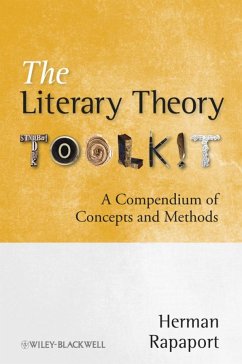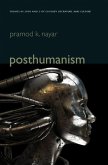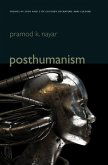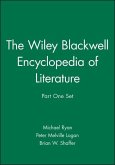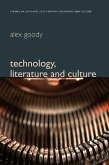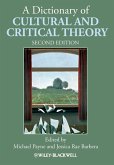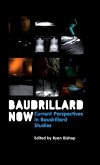Without a proper grasp of its relevant theories, approaches, and technical language, an effective analysis and interpretation of literature can be a daunting task. The Literary Theory Toolkit offers readers a rich compendium of key terms, concepts, and arguments necessary for the study of literature in a critical-theoretical context.
The Literary Theory Toolkit offers readers a rich compendium of key terms, concepts, and arguments necessary for the study of literature in a critical-theoretical context.
Includes varied examples drawn from readily available literary texts spanning all periods and genres
Features a chapter on performance, something not usually covered in similar texts
Covers differing theories of the public sphere, ideology, power, and the social relations necessary for the understanding of approaches to literature
Hinweis: Dieser Artikel kann nur an eine deutsche Lieferadresse ausgeliefert werden.
The Literary Theory Toolkit offers readers a rich compendium of key terms, concepts, and arguments necessary for the study of literature in a critical-theoretical context.
Includes varied examples drawn from readily available literary texts spanning all periods and genres
Features a chapter on performance, something not usually covered in similar texts
Covers differing theories of the public sphere, ideology, power, and the social relations necessary for the understanding of approaches to literature
Hinweis: Dieser Artikel kann nur an eine deutsche Lieferadresse ausgeliefert werden.
"Rapaport (Wake Forest Univ.) calls this clearly written book "a compendium of major issues and developments in literary criticism and theory" and "a companion to major issues in literary criticism and theory that can be read linearly in terms of units or areas. . . Highly recommended. Upper-division undergraduates and above." (Choice, 1 October 2011)
"The methods are nicely illustrated in a diverse selection of example texts." (Book New, 1 August 2011)
"The methods are nicely illustrated in a diverse selection of example texts." (Book New, 1 August 2011)

